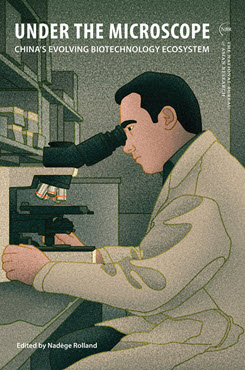Essay in NBR Special Report No. 114
The Importance of Genomic Data for China’s Global Health Ambitions
This essay explores the use of genomic data and artificial intelligence in healthcare, addresses how China will be able to drive its bioeconomy with this data, and discusses the security implications of these capabilities.
EXECUTIVE SUMMARY
MAIN ARGUMENT
China has made genomics a national priority and treats its genomic data as a strategic resource, which has several national security implications for the U.S. The Chinese government has created an R&D ecosystem where genetic data fuels the development of biotechnology applications, including public health and biodefense, medicine, and agriculture and food security. The rapid development of artificial intelligence in genomics facilitates large-scale data processing and utilization. China’s generation, accumulation, and utilization of genetic data is aided by central policy planning in health-specific and R&D policy areas and is translating into global leadership in genomics. China is amassing large amounts of genomic data by leveraging its collaborations with foreign entities, while at the same time prohibiting external access to its genomic data.
POLICY IMPLICATIONS
The accumulation and utilization of genetic data by China, and its subsequent global leadership in genomics, has several policy implications for the U.S., particularly the Department of Defense:
- Translating R&D into applications. By harnessing the acquisition process, the Department of Defense could support not just precision medicine but the multiple areas that the new technology will touch.
- Supporting the research base. The Department of Defense could invest in and support not only the development but the manufacturing of equipment necessary to conduct genomic research.
- Securing military service members’ genomic data. The Department of Defense should prioritize protecting the genomic data of service members, their families, and civilian employees so that it cannot be exploited by foreign entities.
- Confronting ethical dilemmas. Genomic technologies can be used in ways that the U.S. would consider unethical. Understanding the depth and breadth of research globally and discussing ways with allies and like-minded countries to regulate it and develop countermeasures will ensure that the U.S. is better prepared for the misuse of genomic research.
Caroline Schuerger was previously a Research Fellow at Georgetown’s Center for Security and Emerging Technology from 2021 to 2023.
Anna Puglisi is a Visiting Fellow at Stanford University’s Hoover Institution.


